Search
Search results
Lucy Buglass (45 KP) rated Ghost Stories (2018) in Movies
Jun 20, 2019
For years, mankind has pondered over the existence of ghosts, demons and the paranormal. Many have claimed to have experienced it firsthand, while others dedicate their lives and careers to debunking those experiences. It seems to be a question that no one has been able to answer or prove one way or the other, and this fear of the unknown has been the basis of a number of popular horror stories.
Based on the stage play of the same name, ‘Ghost Stories’ follows skeptic Professor Phillip Goodman’s (Nyman) investigation of three unsolved cases, each one detailing a different haunting. After meeting with his idol and fellow skeptic Charles Cameron, and feeling deflated when he begins to question his lifelong skepticism, Goodman meets with former night watchman Tony Matthews (Whitehouse), teenager Simon Rifkind (Lawther), and businessman Mike Priddle (Freeman) to learn about their firsthand experiences with the supernatural. The film is split into three segments, allowing each character to explain their case through the use of flashbacks where we get to see exactly what happened to the characters.
Throughout these flashbacks, Nyman and Dyson have utilised a number of popular horror techniques that will make you jump out of your seat, or hide behind your hands. There’s a serious feeling of unease throughout the entire film, and you have no idea what’s going to happen next. Even as an avid fan of the genre, I found myself genuinely terrified during a large portion of the film. ‘Ghost Stories’ knows exactly how to pace a horror film, and how to leave an audience uncomfortable yet unable to look away from the screen. Whilst the jump scare is inevitable, the film doesn’t overuse these and instead finds ways to build tension and fear, which actually heightens the experience because you find yourself trying to predict when something’s going to pop out at you. It leaves you on edge for the entire ninety minutes, which in my mind, is exactly what a horror film should do.
The stories told by each of the men are gripping, and the actors all do exceptional jobs of portraying their characters. Each of the men interviewed by Goodman are very different in their class backgrounds, beliefs and personalities, but are united in their adamancy that they did experience hauntings and that they left them completely shaken up afterwards. This reinforces the idea that the supernatural can target anyone, and leave anyone feeling helpless. Particular praise has to be given to Alex Lawther; after seeing him in season 3 of ‘Black Mirror’ I had high hopes, and he delivered. He’s certainly one to watch and I look forward to seeing what he gets up to next.
‘Ghost Stories’ is incredibly British in nature, mixing the right amount of dry humour and satire into what is an utterly terrifying experience overall. Other critics have said it’s the best British horror film in years, and I couldn’t agree more. It’s an incredibly gripping story that has a lot of twists and turns, and tugs at all of your heartstrings. Alongside the characters, I went through a number of emotions and felt fully invested in their lives. These are all characters that feel familiar, they’re your average human, which throws realism into the mix. Being able to identify with characters in a horror film makes your fear 100 times worse.
This film is best experienced with as little context as possible, if you walk into it completely blind, I believe you’ll get maximum enjoyment out of it. The trailers have done a great job at keeping it as vague as possible, which was a bonus. There’s nothing worse than trailers giving everything away in a few seconds. ‘Ghost Stories’ does have a twist ending, but I thought this was done brilliantly and I personally was unable to predict it. Nyman and Dyson have put so much effort into crafting an intense, thrilling, mysterious story and it’s seriously paid off. I’m now hoping ‘Ghost Stories’ will be returning to the stage soon, because I’ll be first in line for a ticket!
https://jumpcutonline.co.uk/ghost-stories/
Based on the stage play of the same name, ‘Ghost Stories’ follows skeptic Professor Phillip Goodman’s (Nyman) investigation of three unsolved cases, each one detailing a different haunting. After meeting with his idol and fellow skeptic Charles Cameron, and feeling deflated when he begins to question his lifelong skepticism, Goodman meets with former night watchman Tony Matthews (Whitehouse), teenager Simon Rifkind (Lawther), and businessman Mike Priddle (Freeman) to learn about their firsthand experiences with the supernatural. The film is split into three segments, allowing each character to explain their case through the use of flashbacks where we get to see exactly what happened to the characters.
Throughout these flashbacks, Nyman and Dyson have utilised a number of popular horror techniques that will make you jump out of your seat, or hide behind your hands. There’s a serious feeling of unease throughout the entire film, and you have no idea what’s going to happen next. Even as an avid fan of the genre, I found myself genuinely terrified during a large portion of the film. ‘Ghost Stories’ knows exactly how to pace a horror film, and how to leave an audience uncomfortable yet unable to look away from the screen. Whilst the jump scare is inevitable, the film doesn’t overuse these and instead finds ways to build tension and fear, which actually heightens the experience because you find yourself trying to predict when something’s going to pop out at you. It leaves you on edge for the entire ninety minutes, which in my mind, is exactly what a horror film should do.
The stories told by each of the men are gripping, and the actors all do exceptional jobs of portraying their characters. Each of the men interviewed by Goodman are very different in their class backgrounds, beliefs and personalities, but are united in their adamancy that they did experience hauntings and that they left them completely shaken up afterwards. This reinforces the idea that the supernatural can target anyone, and leave anyone feeling helpless. Particular praise has to be given to Alex Lawther; after seeing him in season 3 of ‘Black Mirror’ I had high hopes, and he delivered. He’s certainly one to watch and I look forward to seeing what he gets up to next.
‘Ghost Stories’ is incredibly British in nature, mixing the right amount of dry humour and satire into what is an utterly terrifying experience overall. Other critics have said it’s the best British horror film in years, and I couldn’t agree more. It’s an incredibly gripping story that has a lot of twists and turns, and tugs at all of your heartstrings. Alongside the characters, I went through a number of emotions and felt fully invested in their lives. These are all characters that feel familiar, they’re your average human, which throws realism into the mix. Being able to identify with characters in a horror film makes your fear 100 times worse.
This film is best experienced with as little context as possible, if you walk into it completely blind, I believe you’ll get maximum enjoyment out of it. The trailers have done a great job at keeping it as vague as possible, which was a bonus. There’s nothing worse than trailers giving everything away in a few seconds. ‘Ghost Stories’ does have a twist ending, but I thought this was done brilliantly and I personally was unable to predict it. Nyman and Dyson have put so much effort into crafting an intense, thrilling, mysterious story and it’s seriously paid off. I’m now hoping ‘Ghost Stories’ will be returning to the stage soon, because I’ll be first in line for a ticket!
https://jumpcutonline.co.uk/ghost-stories/
Lucy Buglass (45 KP) rated The House That Jack Built (2018) in Movies
Jun 20, 2019
Danish director Lars Von Trier is no stranger to controversy. He has certainly divided film fans with some praising his work and some condemning it. The House That Jack Built is his most recent creation, causing audience members at Cannes to either walk out in disgust or stand up and applaud. This seriously mixed reception caught my interest and I wanted to find out what he’d done to generate such a response.
I’ve only seen two of his previous films; Antichrist and Melancholia, the former being a film that disturbed me so much I haven’t been able to watch it a second time. Its visceral, raw and harrowing portrayal of sex, violence, and self-mutilation is something that is a thoroughly uncomfortable and unpleasant watch. Because of Antichrist, I felt nervous yet strangely excited to see what The House That Jack Built had in store for me. I was surprised, however, to discover that it is arguably his tamest film to date, with a lot of the more graphic content happening off-screen. That doesn’t mean it doesn’t have its disturbing moments, but it was a lot less visceral than I was expecting based on its recent backlash.
The film is split into five chapters labelled ‘The Incidents’ and an epilogue, detailing some of the murders that Jack carried out over a 12-year span. Two of these incidents include child abuse and female mutilation, but is presented in a much more psychologically disturbing way rather than uncomfortable close-ups and drawn out scenes that you watch from behind your hands. The House That Jack Built spends more time tapping into Jack’s own psyche than it does the atrocities he commits, with Matt Dillon really stealing the show as the titular character.
It’s also darkly funny in places, which I certainly wasn’t expecting. Dillon’s portrayal of a psychotic killer with OCD is both terrifying and amusing. He is simultaneously charming and unhinged, which is a difficult thing to pull off. He was by far my favourite thing about the film, reminiscent of so many iconic serial killers that have fascinated the general public. The film relied heavily on Jack’s character and inner thoughts so it was great to see Dillon pull it off so brilliantly.
Much like Von Trier’s previous work, The House That Jack Built features lots of symbolism throughout the narrative. In this case, it focuses heavily on religion, art and family, with Jack being challenged on all of these as he recounts the incidents. The voice challenging him is a mystery to us until the third act, where Bruno Ganz’s character is finally revealed to us. I found this reveal to be a little jarring and strange, but not unexpected from one of his films. For me, the third act is where it started to go downhill and I lost interest, which is a real shame after the strength of the first two. Despite seeing some really great analyses online, it wasn’t enough to change my own views on the way it ended. It just seemed a little too out of place for my liking.
The visual style is interesting and combines live action with animation and still images. This feels very random but in the context of this particular film, it actually works in its favour. Both Dillon and Ganz narrate over the animation and still images, giving us monologues that act as food for thought and raise questions about morality, life, death and so on. It’s an intense film in that regard and one that you have to really concentrate on in order to enjoy properly.
The House That Jack Built is a depressing, harrowing and strange film. Its blend of sadistic violence and humour makes it a truly unique horror film that seems to appeal to a very specific audience. It’s not for the faint of heart, and Jack’s misogynistic killing sprees teamed with his nihilistic outlook on life is bound to be uncomfortable for many to witness. As a case study on a serial killer it’s a fascinating watch, but out of the three films I’ve seen, this one is unfortunately the weakest in my eyes.
https://jumpcutonline.co.uk/review-the-house-that-jack-built-2018/
I’ve only seen two of his previous films; Antichrist and Melancholia, the former being a film that disturbed me so much I haven’t been able to watch it a second time. Its visceral, raw and harrowing portrayal of sex, violence, and self-mutilation is something that is a thoroughly uncomfortable and unpleasant watch. Because of Antichrist, I felt nervous yet strangely excited to see what The House That Jack Built had in store for me. I was surprised, however, to discover that it is arguably his tamest film to date, with a lot of the more graphic content happening off-screen. That doesn’t mean it doesn’t have its disturbing moments, but it was a lot less visceral than I was expecting based on its recent backlash.
The film is split into five chapters labelled ‘The Incidents’ and an epilogue, detailing some of the murders that Jack carried out over a 12-year span. Two of these incidents include child abuse and female mutilation, but is presented in a much more psychologically disturbing way rather than uncomfortable close-ups and drawn out scenes that you watch from behind your hands. The House That Jack Built spends more time tapping into Jack’s own psyche than it does the atrocities he commits, with Matt Dillon really stealing the show as the titular character.
It’s also darkly funny in places, which I certainly wasn’t expecting. Dillon’s portrayal of a psychotic killer with OCD is both terrifying and amusing. He is simultaneously charming and unhinged, which is a difficult thing to pull off. He was by far my favourite thing about the film, reminiscent of so many iconic serial killers that have fascinated the general public. The film relied heavily on Jack’s character and inner thoughts so it was great to see Dillon pull it off so brilliantly.
Much like Von Trier’s previous work, The House That Jack Built features lots of symbolism throughout the narrative. In this case, it focuses heavily on religion, art and family, with Jack being challenged on all of these as he recounts the incidents. The voice challenging him is a mystery to us until the third act, where Bruno Ganz’s character is finally revealed to us. I found this reveal to be a little jarring and strange, but not unexpected from one of his films. For me, the third act is where it started to go downhill and I lost interest, which is a real shame after the strength of the first two. Despite seeing some really great analyses online, it wasn’t enough to change my own views on the way it ended. It just seemed a little too out of place for my liking.
The visual style is interesting and combines live action with animation and still images. This feels very random but in the context of this particular film, it actually works in its favour. Both Dillon and Ganz narrate over the animation and still images, giving us monologues that act as food for thought and raise questions about morality, life, death and so on. It’s an intense film in that regard and one that you have to really concentrate on in order to enjoy properly.
The House That Jack Built is a depressing, harrowing and strange film. Its blend of sadistic violence and humour makes it a truly unique horror film that seems to appeal to a very specific audience. It’s not for the faint of heart, and Jack’s misogynistic killing sprees teamed with his nihilistic outlook on life is bound to be uncomfortable for many to witness. As a case study on a serial killer it’s a fascinating watch, but out of the three films I’ve seen, this one is unfortunately the weakest in my eyes.
https://jumpcutonline.co.uk/review-the-house-that-jack-built-2018/
Darren (1599 KP) rated Alone in the Dark (2005) in Movies
Jun 20, 2019
Story: I am going to first look at this only as a story, no opinions on the CGI or casting choices. If you were to look at the story as a solo idea you get a solid action horror. Now I hear people going ‘no its just crap’ so let’s look at the details. First off we have an idea of scientific experiment on children to create sleepers, but something goes wrong so we don’t see why it happened until more discoveries in the future. Then we have a search for hidden treasures of a lost ancient people. Add in a paranormal investigator, a secret government paranormal investigating team and the search for a truth. Now looking at those factors we should have a good story not special but enjoyable. Now with terrible casting decisions, awful CGI and a script that could have been written but a child everything goes south fast. As an idea for a story this is good, but as an execution of a story it’s bad. (5/10)
Actor Review
Christian Slater: Edward Carnby a paranormal investigator who has been trying to uncover the truth about his childhood, this puts him in danger as this time he has got closer than ever before. He must team up with his old organisation to final uncover the truth that has lost him the memories of his childhood. Slater strolls for this role without showing any of the skills that made him a star in the early 90s. (5/10)
slater
Tara Reid: Aline Cedrac assistant curator at the museum who also happens to be Edward’s girlfriend, she gets caught up in the middle of the battle after she uncover the location of the door. Going to take a deep breath before going for this one, just no how did this happen? Try your luck in romantic comedies. (2/10)
reid
Stephen Dorff: Commander Burke leader of a military team trying to keep the monsters away from the public, old partner of Edward but after seeing the truth he teams up with them to uncover the truth. Stephen can act and has proven it many times, just need to give him something to work with. (4/10)
dorff
Frank C Turner: Sam an old connection within the organisation that still communicates with Edward, he fills in the science gaps and you can guess what happens to him by the end. Basic supporting performance. (4/10)
fisher
Matthew Walker: Professor Hudgens scientist trying to open the door to the truth about the ancient people, he will do anything to get his answers including sacrificing anybody who gets in his way. As villains go this is generic one that doesn’t need too much to make them special. (4/10)
profes
Director Review: Uwe Boll – He not only managed to mess up a relatively easy story with awful CGI and lack of directing ideas. (2/10)
Action: Plenty of guns being fired, not sure if they ever hit anything as everything is in the pitch black. (3/10)
Horror: Doesn’t give you any scares, frights, well made with the acting. (1/10)
Settings: The settings used for the gun fights are used well, because they would make real settings for such a discover if someone wanted to keep it quiet. (6/10)
Special Effects: Terrible special effects that I only saw one good one and that was a soldier’s head split in two. (1/10)
Suggestion: I think if you are bored one night and this is on it would be acceptable to watch it as it slips close to the line of so bad you have to see. (Late Night TV)
Best Part: The idea
Worst Part: The CGI, Acting and Execution of the idea.
Believability: No (0/10)
Chances of Tears: No (0/10)
Chances of Sequel: Actually has one sequel
Post Credits Scene: No
Oscar Chances: No
Box Office: $10 Million
Budget: $20 Million
Runtime: 1 Hour 39 Minutes
Tagline: Can mankind defeat the army of darkness unleashed by an ancient evil cult?
Overall: Not only did this film destroy the source material, it ruined any chance the video game had of returning.
https://moviesreview101.com/2014/11/09/alone-in-the-dark-2005/
Actor Review
Christian Slater: Edward Carnby a paranormal investigator who has been trying to uncover the truth about his childhood, this puts him in danger as this time he has got closer than ever before. He must team up with his old organisation to final uncover the truth that has lost him the memories of his childhood. Slater strolls for this role without showing any of the skills that made him a star in the early 90s. (5/10)
slater
Tara Reid: Aline Cedrac assistant curator at the museum who also happens to be Edward’s girlfriend, she gets caught up in the middle of the battle after she uncover the location of the door. Going to take a deep breath before going for this one, just no how did this happen? Try your luck in romantic comedies. (2/10)
reid
Stephen Dorff: Commander Burke leader of a military team trying to keep the monsters away from the public, old partner of Edward but after seeing the truth he teams up with them to uncover the truth. Stephen can act and has proven it many times, just need to give him something to work with. (4/10)
dorff
Frank C Turner: Sam an old connection within the organisation that still communicates with Edward, he fills in the science gaps and you can guess what happens to him by the end. Basic supporting performance. (4/10)
fisher
Matthew Walker: Professor Hudgens scientist trying to open the door to the truth about the ancient people, he will do anything to get his answers including sacrificing anybody who gets in his way. As villains go this is generic one that doesn’t need too much to make them special. (4/10)
profes
Director Review: Uwe Boll – He not only managed to mess up a relatively easy story with awful CGI and lack of directing ideas. (2/10)
Action: Plenty of guns being fired, not sure if they ever hit anything as everything is in the pitch black. (3/10)
Horror: Doesn’t give you any scares, frights, well made with the acting. (1/10)
Settings: The settings used for the gun fights are used well, because they would make real settings for such a discover if someone wanted to keep it quiet. (6/10)
Special Effects: Terrible special effects that I only saw one good one and that was a soldier’s head split in two. (1/10)
Suggestion: I think if you are bored one night and this is on it would be acceptable to watch it as it slips close to the line of so bad you have to see. (Late Night TV)
Best Part: The idea
Worst Part: The CGI, Acting and Execution of the idea.
Believability: No (0/10)
Chances of Tears: No (0/10)
Chances of Sequel: Actually has one sequel
Post Credits Scene: No
Oscar Chances: No
Box Office: $10 Million
Budget: $20 Million
Runtime: 1 Hour 39 Minutes
Tagline: Can mankind defeat the army of darkness unleashed by an ancient evil cult?
Overall: Not only did this film destroy the source material, it ruined any chance the video game had of returning.
https://moviesreview101.com/2014/11/09/alone-in-the-dark-2005/
Ross (3284 KP) rated Cold Iron (Masters & Mages #1) in Books
Jan 22, 2019
Elaborate prose and an unsettling amount of "wait and see" damaged my enjoyment
This book feels like your standard coming-of-age fantasy - young man from a simple village finds himself in the big city destined for greatness and surrounds himself with strong watchers while he grows into his potential. It is that and it is so much more.
The story that is told is how Aranthur, this young man (selected from his village to attend the big city university) finds himself in the midst of conflict and significant events in the empire's changing status. The idea of fate dictating that this one man would be at the centre of things (see Wheel of Time) is not one that is explored here. While it is hinted at (he is frequently told off for ending up in unusual circumstances), it isn't overly laboured. Nobody tells him he was chosen or anything like that. Instead he gradually learns that he has found himself at the centre of political intrigue, plotting, counter-plotting, conspiracies and war.
This book is not about Aranthur. He is just the focal point of the book, the story is so much bigger than him. This meant it did at times become a little hard to take that he always just happened to meet the right person, go to the right place at the right time in order to witness or participate in a number of significant plot events. In hindsight, this is largely all explained as some hidden agenda and him being put in those places to make those decisions but at the time it was a little jarring.
The narrative is more akin to Robert Jordan than many contemporary writers - so much overly elaborate description of people, places, clothes, horses, weapons etc. At times this adds to the reading experience but I found it over-used and made the book feel like a much longer read (I was shocked when I found out it was just under 450 pages - it reads like around 700). Also, so much of the narrative is in either italics (to show it is a magic/majick/magik delete as appropriate) or is in some odd variation of French ("gonne" for gun, "quaveh" for coffee etc) to become irritating. At times the book is more like a decent fantasy tale or conspiracy and intrigue which has been edited by a historical re-enactment nut. Given this is fictional and the world is the author's to do with as he wishes, forcing some historical accuracy at the expense of reader enjoyment seemed an odd decision to make.
The magical system seems fairly standard fantasy fayre, albeit it is not described or explored in any detail, people just suddenly do things which haven't previously been mentioned. A large aspect of the book is Aranthur's being chosen to translate an ancient text to decode the magical secrets hidden there. I think in all he decodes three of these, and uses them, but there is no mention of them until he has to use them in a fight. It could just be that I have been reading a lot of LitRPG recently, where every spell is described in intimate detail and its uses are discussed way in advance of being needed in combat, but I felt like it was something of an afterthought or rescue from a plot dead-end ("oh sod it, say he done a magic").
While I did enjoy this book on the whole, the narrative style and the focus being on clothes rather than describing the interesting aspects of the world were to its detriment. Also, the book is written as two "books" (chapters), the first "book" covers around 80% and all in one long chapter without breaks. To my mind, ending there would have sufficed. The final 20% in "book 2" felt like part epilogue, part sequel and should maybe have been split as such.
My advice to anyone reading this, is to suspend disbelief that little bit further and trust that things do largely get explained satisfactorily before the end.
The story that is told is how Aranthur, this young man (selected from his village to attend the big city university) finds himself in the midst of conflict and significant events in the empire's changing status. The idea of fate dictating that this one man would be at the centre of things (see Wheel of Time) is not one that is explored here. While it is hinted at (he is frequently told off for ending up in unusual circumstances), it isn't overly laboured. Nobody tells him he was chosen or anything like that. Instead he gradually learns that he has found himself at the centre of political intrigue, plotting, counter-plotting, conspiracies and war.
This book is not about Aranthur. He is just the focal point of the book, the story is so much bigger than him. This meant it did at times become a little hard to take that he always just happened to meet the right person, go to the right place at the right time in order to witness or participate in a number of significant plot events. In hindsight, this is largely all explained as some hidden agenda and him being put in those places to make those decisions but at the time it was a little jarring.
The narrative is more akin to Robert Jordan than many contemporary writers - so much overly elaborate description of people, places, clothes, horses, weapons etc. At times this adds to the reading experience but I found it over-used and made the book feel like a much longer read (I was shocked when I found out it was just under 450 pages - it reads like around 700). Also, so much of the narrative is in either italics (to show it is a magic/majick/magik delete as appropriate) or is in some odd variation of French ("gonne" for gun, "quaveh" for coffee etc) to become irritating. At times the book is more like a decent fantasy tale or conspiracy and intrigue which has been edited by a historical re-enactment nut. Given this is fictional and the world is the author's to do with as he wishes, forcing some historical accuracy at the expense of reader enjoyment seemed an odd decision to make.
The magical system seems fairly standard fantasy fayre, albeit it is not described or explored in any detail, people just suddenly do things which haven't previously been mentioned. A large aspect of the book is Aranthur's being chosen to translate an ancient text to decode the magical secrets hidden there. I think in all he decodes three of these, and uses them, but there is no mention of them until he has to use them in a fight. It could just be that I have been reading a lot of LitRPG recently, where every spell is described in intimate detail and its uses are discussed way in advance of being needed in combat, but I felt like it was something of an afterthought or rescue from a plot dead-end ("oh sod it, say he done a magic").
While I did enjoy this book on the whole, the narrative style and the focus being on clothes rather than describing the interesting aspects of the world were to its detriment. Also, the book is written as two "books" (chapters), the first "book" covers around 80% and all in one long chapter without breaks. To my mind, ending there would have sufficed. The final 20% in "book 2" felt like part epilogue, part sequel and should maybe have been split as such.
My advice to anyone reading this, is to suspend disbelief that little bit further and trust that things do largely get explained satisfactorily before the end.
Emma @ The Movies (1786 KP) rated Black and Blue (2019) in Movies
Nov 7, 2019
Having seen the film I can confidently say that this has been woefully under screened. Just one screening at my local, luckily at the sensible time of 17.20 every day. Looking at other times it's getting relegated to some late slots which is never good.
Alicia West has come back to her home town and joined the local police department after being deployed. It's not the neighbourhood she remembers, there's distrust and gangs everywhere she looks, even her old friend pretends not to know her.
Taking a double shift as a favour to her partner she goes out on patrol with Officer Brown, he's old school and not going to change his ways... they don't see eye to eye. He takes a private call and says they need to go on a call so he cn meet a CI. He orders her to stay in the car and she waits suspiciously until two shots ring out. She enters the building to investigate, body cam turned on, and comes across a group of police officers who have executed members of a local gang. Thinking on instinct they shoot at her which allows her to escape. She needs to get the footage uploaded to expose the corruption but between her and the station are corrupt police officers and a community that hates cops. Who can she trust?
I found Black And Blue to be a really enjoyable. The action was tense and the story had a consistent pace all the way through and I felt really gripped as I watched it. My only disappointment was that they gave it sickly sweet ending. It brought the story full circle for West but it was so out of place with what we'd already seen. It wasn't necessary and I feel like it detracted from the effort everything else put in.
Naomie Harris is our lead and she handles the role like a seasoned pro. She brings across the optimism of West's character and you can see the intrigue and sadness in her as she realises just how bad things have become in her neighbourhood. Harris adapts well to each scenario and at times you could feel a genuine sense of fear as she's being pursued.
Frank Grillo plays Terry Malone, the leader of our group of corrupt cops. He's a great bit of casting. Towards the end I feel like the character deviates a little from what I might have expected but the performance was so good to watch that I wasn't too bothered by that.
Another face you'll recognise is Mike Colter as Darius, Darius is the head of one of the local gangs and during the course of the story he's also hot on West's heals. He's a very dark character and Colter captures that well, there's a particularly good scene with West where we're preparing for the finale of the film and the way he changes in his split second decisions really elevates the moment.
The last actor I'll mention is Tyrese Gibson as Milo, Milo brings a much softer side to the whole story, he's not about the violence and I think that Gibson had the perfect demeanour for this role. We get some much needed respite from the heavy tension and action with his scenes. I feel like there's some back story we needed to know for him though, he needed some more explaining and that was just missing in everything we saw.
Black And Blue has a strong message about society divided by hate, I'm not the right person to tell ou its accuracy. There are stereotypes knocking around all over the place but I don't think that's necessarily a bad thing. The film focused on the corruption in the neighbourhood and that's what you see, you wouldn't be getting other walks of life so it fits the idea perfectly.
I genuinely enjoyed watching this and the film kept me on the edge of my seat, this it something I'll look forward to watching again.
What you should do
If you like crime drama then I think you'll enjoy this, there's good action and great characters.
Movie thing you wish you could take home
Some of West's kickass moves and super human will to survive.
Alicia West has come back to her home town and joined the local police department after being deployed. It's not the neighbourhood she remembers, there's distrust and gangs everywhere she looks, even her old friend pretends not to know her.
Taking a double shift as a favour to her partner she goes out on patrol with Officer Brown, he's old school and not going to change his ways... they don't see eye to eye. He takes a private call and says they need to go on a call so he cn meet a CI. He orders her to stay in the car and she waits suspiciously until two shots ring out. She enters the building to investigate, body cam turned on, and comes across a group of police officers who have executed members of a local gang. Thinking on instinct they shoot at her which allows her to escape. She needs to get the footage uploaded to expose the corruption but between her and the station are corrupt police officers and a community that hates cops. Who can she trust?
I found Black And Blue to be a really enjoyable. The action was tense and the story had a consistent pace all the way through and I felt really gripped as I watched it. My only disappointment was that they gave it sickly sweet ending. It brought the story full circle for West but it was so out of place with what we'd already seen. It wasn't necessary and I feel like it detracted from the effort everything else put in.
Naomie Harris is our lead and she handles the role like a seasoned pro. She brings across the optimism of West's character and you can see the intrigue and sadness in her as she realises just how bad things have become in her neighbourhood. Harris adapts well to each scenario and at times you could feel a genuine sense of fear as she's being pursued.
Frank Grillo plays Terry Malone, the leader of our group of corrupt cops. He's a great bit of casting. Towards the end I feel like the character deviates a little from what I might have expected but the performance was so good to watch that I wasn't too bothered by that.
Another face you'll recognise is Mike Colter as Darius, Darius is the head of one of the local gangs and during the course of the story he's also hot on West's heals. He's a very dark character and Colter captures that well, there's a particularly good scene with West where we're preparing for the finale of the film and the way he changes in his split second decisions really elevates the moment.
The last actor I'll mention is Tyrese Gibson as Milo, Milo brings a much softer side to the whole story, he's not about the violence and I think that Gibson had the perfect demeanour for this role. We get some much needed respite from the heavy tension and action with his scenes. I feel like there's some back story we needed to know for him though, he needed some more explaining and that was just missing in everything we saw.
Black And Blue has a strong message about society divided by hate, I'm not the right person to tell ou its accuracy. There are stereotypes knocking around all over the place but I don't think that's necessarily a bad thing. The film focused on the corruption in the neighbourhood and that's what you see, you wouldn't be getting other walks of life so it fits the idea perfectly.
I genuinely enjoyed watching this and the film kept me on the edge of my seat, this it something I'll look forward to watching again.
What you should do
If you like crime drama then I think you'll enjoy this, there's good action and great characters.
Movie thing you wish you could take home
Some of West's kickass moves and super human will to survive.

Audio Bible - Biblia Cornilescu (The Holy Bible in Romanian)
Book and Education
App
Aceasta este Biblia Audio in limba romana pentru tine de a asculta pe drum sau la domiciliu și să...
Sarah (7800 KP) rated Crisis (2021) in Movies
Feb 19, 2021
Worth it just for Oldman
Crisis is a 2021 film from write, director and producer Nicholas Jarecki, who previously brought us 2012's Arbitrage starring Richard Gere. Crisis is a story about drugs, namely opioids, and follows three separate yet related narratives about opioids and their impact on US society. There's an undercover DEA agent posing as a drug trafficker arranging a Fentanyl smuggling operation between Canada and the US (Armie Hammer), a recovering addict architect determined to track down those responsible for her son's involvement in narcotics (Evangeline Lilly), and a university professor (Gary Oldman) who's research laboratory uncovers dangerous revelations about a new drug that they've been paid to research by a very influential drug company and their executives (Luke Evans).
The main purpose of Crisis appears to be highlighting two entirely juxtaposed real life issues with opioids - the illegal smuggling and import of street drugs and the completely legal yet questionable drugs introduced by drug companies with full support of the government. For most, neither of these stories should be particularly surprising as they're fairly common knowledge and have been featured in countless films and documentaries over the years, although I think this may be the first time the two stories have been shown together in a film. And for Crisis this really works - showing the two contrasting issues makes for a more interesting and unique story rather than concentrating solely on one that we've seen many times before, especially as its split into three separate narratives.
However, the problem with Crisis is that not all of the narratives are as engaging as intended. Evangeline Lilly puts in a wonderful and emotional performance as architect and mother Claire, but her narrative becomes a little unrealistic as she becomes bent on revenge at those responsible for involving her son in the drugs underworld. And unfortunately Armie Hammer's narrative as undercover federal agent Jake is nothing original, with a smuggling operation and drugs bust that we've seen in many other films, some of which I'm afraid have done it a lot better. The most interesting narrative though is that of Gary Oldman as Dr Tyrone Brower, whose struggle over whether to tell the truth about a new dangerous drug or take the money from his drug company employers is a surprisingly thrilling morality tale. It's helped by a superb turn from Oldman himself and a wonderful supporting role from Greg Kinnear (who I've adored since 1997's As Good As It Gets), and the verbal sparring scenes between Brower and Kinnear's university Dean are probably the best in the film. It's a shame however that Luke Evans isn't given as much to do with his part in this narrative, even with his questionable American accent.
The biggest problem I had with all of the narratives is that unlike similar films that intertwine related narratives that eventually intersect dramatically (think 2006's Best Picture Oscar winner Crash), the narratives here don't all come together in the way I was expecting, which was rather disappointing.
Cinematography-wise, director and writer Jarecki does a good job as the film looks and feels good, and really highlights the US and Canadian settings. The soundtrack only adds to the overall tense and suspenseful feel of the film, although it does feature the typical pulsing, drum beat style that seems to be standard for a modern thriller. And the script, while possibly a little clichéd especially around the drugs bust and smuggling, is good and with his supporting acting role as Jake's fellow DEA agent Stan, Nicholas Jarecki could be one to watch in future.
Overall, Crisis is a good thriller that tells the story of well-known drug issues in a different way and does well in highlighting real life concerns. For the most part it succeeds in bringing an interesting set of narratives together for a fairly gripping albeit slightly long film, and despite my preconceptions about how its intersecting storylines should play out, it is an enjoyable watch, although for the most part thanks to the talents of Gary Oldman.
The main purpose of Crisis appears to be highlighting two entirely juxtaposed real life issues with opioids - the illegal smuggling and import of street drugs and the completely legal yet questionable drugs introduced by drug companies with full support of the government. For most, neither of these stories should be particularly surprising as they're fairly common knowledge and have been featured in countless films and documentaries over the years, although I think this may be the first time the two stories have been shown together in a film. And for Crisis this really works - showing the two contrasting issues makes for a more interesting and unique story rather than concentrating solely on one that we've seen many times before, especially as its split into three separate narratives.
However, the problem with Crisis is that not all of the narratives are as engaging as intended. Evangeline Lilly puts in a wonderful and emotional performance as architect and mother Claire, but her narrative becomes a little unrealistic as she becomes bent on revenge at those responsible for involving her son in the drugs underworld. And unfortunately Armie Hammer's narrative as undercover federal agent Jake is nothing original, with a smuggling operation and drugs bust that we've seen in many other films, some of which I'm afraid have done it a lot better. The most interesting narrative though is that of Gary Oldman as Dr Tyrone Brower, whose struggle over whether to tell the truth about a new dangerous drug or take the money from his drug company employers is a surprisingly thrilling morality tale. It's helped by a superb turn from Oldman himself and a wonderful supporting role from Greg Kinnear (who I've adored since 1997's As Good As It Gets), and the verbal sparring scenes between Brower and Kinnear's university Dean are probably the best in the film. It's a shame however that Luke Evans isn't given as much to do with his part in this narrative, even with his questionable American accent.
The biggest problem I had with all of the narratives is that unlike similar films that intertwine related narratives that eventually intersect dramatically (think 2006's Best Picture Oscar winner Crash), the narratives here don't all come together in the way I was expecting, which was rather disappointing.
Cinematography-wise, director and writer Jarecki does a good job as the film looks and feels good, and really highlights the US and Canadian settings. The soundtrack only adds to the overall tense and suspenseful feel of the film, although it does feature the typical pulsing, drum beat style that seems to be standard for a modern thriller. And the script, while possibly a little clichéd especially around the drugs bust and smuggling, is good and with his supporting acting role as Jake's fellow DEA agent Stan, Nicholas Jarecki could be one to watch in future.
Overall, Crisis is a good thriller that tells the story of well-known drug issues in a different way and does well in highlighting real life concerns. For the most part it succeeds in bringing an interesting set of narratives together for a fairly gripping albeit slightly long film, and despite my preconceptions about how its intersecting storylines should play out, it is an enjoyable watch, although for the most part thanks to the talents of Gary Oldman.
Purple Phoenix Games (2266 KP) rated Dogo Dash in Tabletop Games
Oct 15, 2020
During my youth, the best way to settle a disagreement was with a classic game of Rock, Paper, Scissors. As I got older, that translated to the card game War. What would happen if you mixed the two into one hybrid game? You’d get Dogo Dash!
Disclaimer: We were provided a PnP version of Dogo Dash for the purposes of this preview. The artwork and colors may see some changes between this preview and the final production, but is the most current version. -L
Dogo Dash is a trick-taking party game in which players are trying to earn points by collecting the most cards by the time the draw deck runs out. Setup is quick and easy – shuffle the deck and deal 4 cards to each player. Looking at their hands, players will then select one card to play this turn, and will place it face-down on the table. Once all players have chosen their card, everyone will reveal their cards at the same time. The player that played the strongest card is the winner for the turn, and collects all of the played cards. The strength of the cards is as follows: Cookie beats Bear and Dog, Bear beats Dog and Cat, Dog beats Cat, and Cat beats Cookie (and therefore all other cards this turn).
In the event of any ties, where multiple players have played the strongest card, play continues with a small change – the cards played in the round of the tie remain on the table. The tied players select another card from their hand and reveal it simultaneously. Whomever wins this tiebreaker collects all the cards. If the tiebreaker ends in another tie, then the tied players split the cards between themselves. If any player plays a Good Boy card, that round automatically is considered a tie, and a tiebreaker commences with all players. All players draw back up to 4 cards, and play continues in this fashion until the draw deck is empty. The player with the most cards at the end of the game is the winner!
As you can see, this game is pretty simple to learn and fast to play! The elements of War and Rock, Paper, Scissors are evident, but altered with more ‘character’ options and a more involved hierarchy of power. Unlike traditional Rock, Paper, Scissors, the animals/cards of Dogo Dash are more versatile in play. Instead of only beating one other type of card, each card will act differently based upon what other cards are played that turn. For example, Dog always beats Cat – unless someone also played Cookie. Because Cat beats Cookie, which beats Dog, so Cat wins this round! Instead of relying simply on numerical order to determine the hierarchy of power, the game feels more engaging and fun to play.
Another neat element is the inclusion of the Good Boy cards. When played, they automatically force a tie. All players then must participate in the tiebreaker. The Good Boy cards could be a strategic way to bag a ton of cards for yourself – forcing a tie and then winning the tiebreaker earns you essentially 2 rounds worth of cards! Or they could just be a silly way to interfere with opponents or just to keep a round from ending. There are also a couple of special card combos that can be played in a round, but I will leave those for you to discover on your own!
So all in all, how does Dogo Dash perform? I think it is a fast, fun, and light little game that can be played in many different situations. Whether you need a small filler game, are introducing newer gamers to the hobby, or want to find a game that is kid-friendly, Dogo Dash fits the bill. The gameplay feels familiar, but with a few twists, and that makes the overall game fun to play. Definitely check out Dogo Dash once it hits Kickstarter – you don’t want to miss out on this treat!
Disclaimer: We were provided a PnP version of Dogo Dash for the purposes of this preview. The artwork and colors may see some changes between this preview and the final production, but is the most current version. -L
Dogo Dash is a trick-taking party game in which players are trying to earn points by collecting the most cards by the time the draw deck runs out. Setup is quick and easy – shuffle the deck and deal 4 cards to each player. Looking at their hands, players will then select one card to play this turn, and will place it face-down on the table. Once all players have chosen their card, everyone will reveal their cards at the same time. The player that played the strongest card is the winner for the turn, and collects all of the played cards. The strength of the cards is as follows: Cookie beats Bear and Dog, Bear beats Dog and Cat, Dog beats Cat, and Cat beats Cookie (and therefore all other cards this turn).
In the event of any ties, where multiple players have played the strongest card, play continues with a small change – the cards played in the round of the tie remain on the table. The tied players select another card from their hand and reveal it simultaneously. Whomever wins this tiebreaker collects all the cards. If the tiebreaker ends in another tie, then the tied players split the cards between themselves. If any player plays a Good Boy card, that round automatically is considered a tie, and a tiebreaker commences with all players. All players draw back up to 4 cards, and play continues in this fashion until the draw deck is empty. The player with the most cards at the end of the game is the winner!
As you can see, this game is pretty simple to learn and fast to play! The elements of War and Rock, Paper, Scissors are evident, but altered with more ‘character’ options and a more involved hierarchy of power. Unlike traditional Rock, Paper, Scissors, the animals/cards of Dogo Dash are more versatile in play. Instead of only beating one other type of card, each card will act differently based upon what other cards are played that turn. For example, Dog always beats Cat – unless someone also played Cookie. Because Cat beats Cookie, which beats Dog, so Cat wins this round! Instead of relying simply on numerical order to determine the hierarchy of power, the game feels more engaging and fun to play.
Another neat element is the inclusion of the Good Boy cards. When played, they automatically force a tie. All players then must participate in the tiebreaker. The Good Boy cards could be a strategic way to bag a ton of cards for yourself – forcing a tie and then winning the tiebreaker earns you essentially 2 rounds worth of cards! Or they could just be a silly way to interfere with opponents or just to keep a round from ending. There are also a couple of special card combos that can be played in a round, but I will leave those for you to discover on your own!
So all in all, how does Dogo Dash perform? I think it is a fast, fun, and light little game that can be played in many different situations. Whether you need a small filler game, are introducing newer gamers to the hobby, or want to find a game that is kid-friendly, Dogo Dash fits the bill. The gameplay feels familiar, but with a few twists, and that makes the overall game fun to play. Definitely check out Dogo Dash once it hits Kickstarter – you don’t want to miss out on this treat!

Prêt-à-Template
Productivity and Lifestyle
App
Ideas come up all the time. Registering them instantly in our inseparable mobile devices has become...
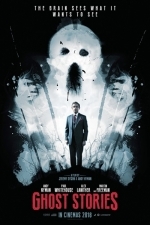
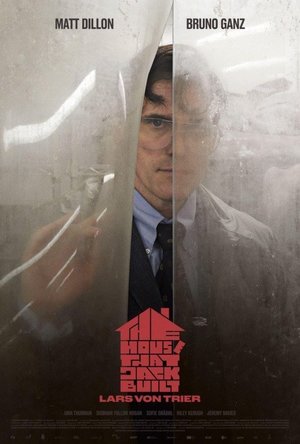
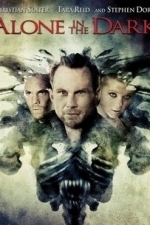
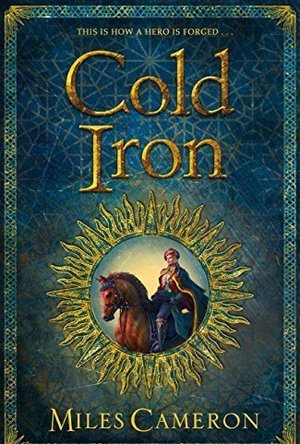
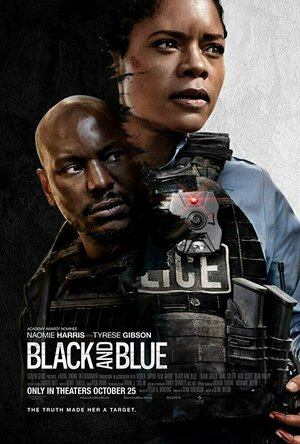
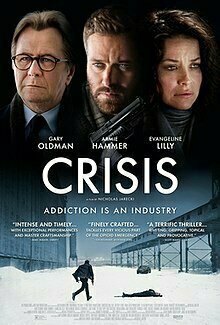


Lee (2222 KP) Jun 20, 2019